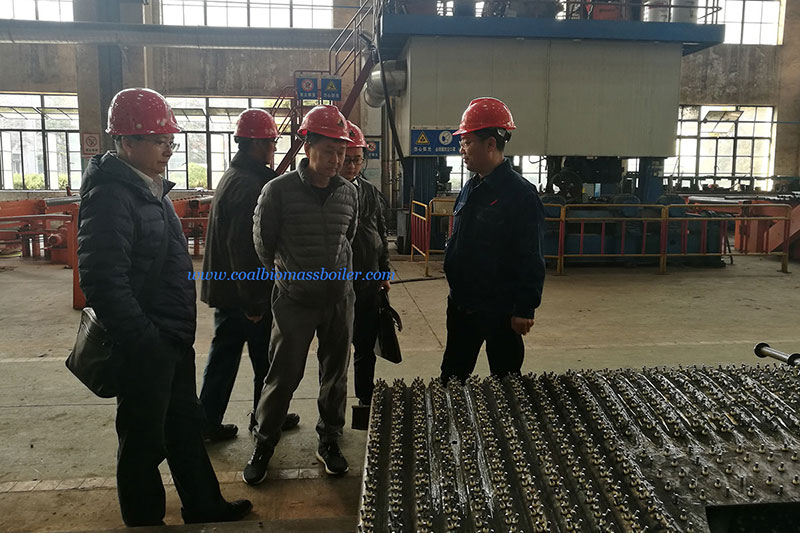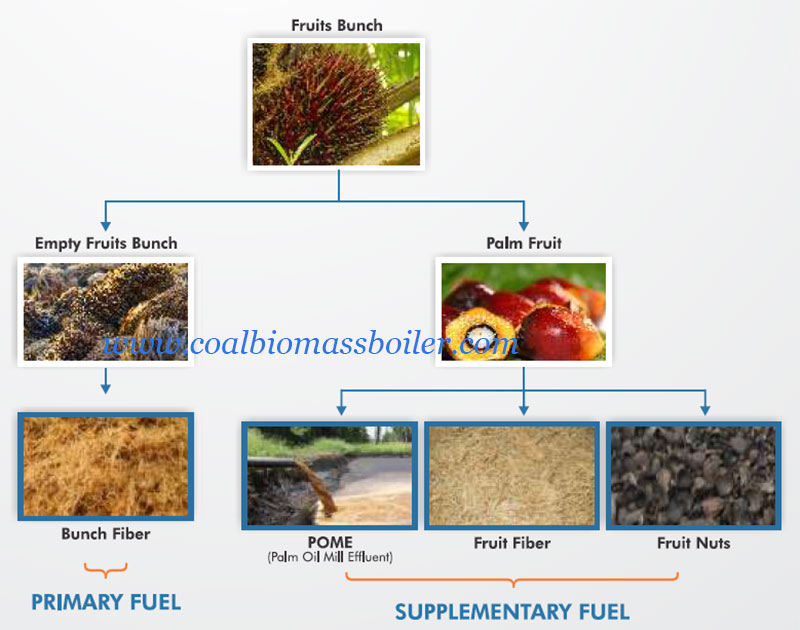EFB Boiler is short for Empty Fruit Bunch Boiler. EFB is the major biomass by-product from crude palm oil mill. However, there is a big potential of converting EFB into renewable energy that could meet the existing energy demand of palm oil mill. EFB is shredded and becomes one solid fuel for steam boiler in biomass power plant. The recovery of energy from the by-product of palm fresh fruit bunch after processing into palm oil can be regarded as an alternative to fossil fuel. It costs nearly nothing to procure EFB, and the only cost incurred maybe comes from transportation of the material.
Readily available and abundant EFB is the main source of palm biomass that can be used by a power plant. Crude palm oil yield was 48.99 million tons per year around the world in 2011. However, Southeast Asia is the main contributor, with Indonesia accounting for 48.79%, Malaysia 36.75%, and Thailand 2.96%.

There are two kinds of EFB fuel power plant boiler, namely corner tube EFB boiler and circulating fluidized bed EFB boiler.
- DHW biomass corner tube boiler:
- Corner tube and self-supporting structure;
- Full welding membrane wall structure features good sealing and small heat loss;
- Box type structure shortens the installation duration;
- Cross-beam grate lowers the operation resistance;
- Biomass CFB boiler:
- Furnace and secondary air make combustible materials easily burn out;
- Superheater structure design avoids ash deposition and reduces corrosion;
- Low pressure operation, low flue gas flow, smooth heating surface, and low maintenance frequency;
- Annual operating time over 8000 hours.

Introduction to the EFB boiler user
In the 1970s, the founder of Southern Acids Berhad (SAB) found the great potential of palm oil as an available alternative feedstock to the oleochemical industry. Realizing the opportunity from the sufficient supply of palm and palm kernel oil in Malaysia, SAB initiated the manufacturing of fatty acids and glycerine in 1980. Today, SAB sells its palm based fatty acids and glycerine all over the world, including USA, Europe, Japan, China, Korea, Middle East, India, etc.
